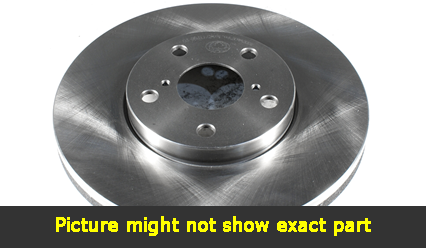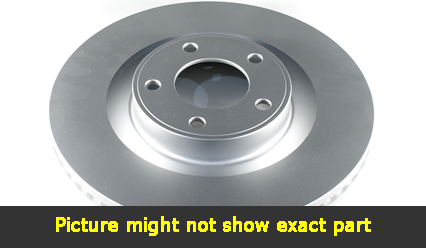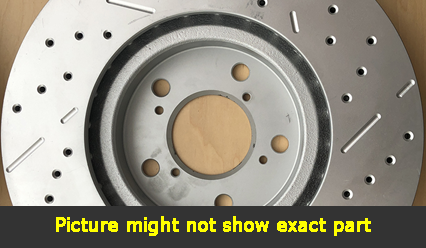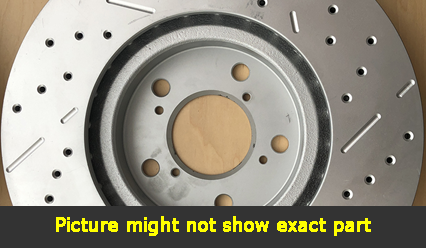2015 Ford Transit Brake Rotors and Pads
Click here to search another vehicle
All Rotors:
OEM x
Coated x
Drilled, Slotted and Coated x
Front x
Rear x
All Pads:
Ceramic x
Semi-metallic x
Front x
Rear x
Found 4 record

Part No: BR575133
Raybestos: 681781
OE: CK4Z1125A
Raybestos: 681781
OE: CK4Z1125A
$82.98 each
Per Car QTY: 2

Part No: PP575133
Raybestos: 681781
OE: CK4Z1125A
Raybestos: 681781
OE: CK4Z1125A
$104.81 each
Per Car QTY: 2

Part No: SP575133L
Raybestos: 681781
OE: CK4Z1125A
Raybestos: 681781
OE: CK4Z1125A
$145.31 each
Per Car QTY: 1

Part No: SP575133R
Raybestos: 681781
OE: CK4Z1125A
Raybestos: 681781
OE: CK4Z1125A
$145.31 each
Per Car QTY: 1
If you own a 2015 Ford Transit, it is essential to choose the right brakes to ensure optimal performance and safety. Brakes have a significant impact on a vehicle's stopping power, so it's crucial to select the right type based on your driving needs and preferences. Here's a useful guide to help you choose brakes for your 2015 Ford Transit:
1. Identify your driving needs: Consider the primary use of your Ford Transit. Is it primarily used for light-duty transportation, heavy hauling, or towing? Knowing your driving needs will help you select brakes that can handle the demands you will place on them.
2. Determine the brake type: Two common brake types for vehicles are drum brakes and disc brakes. Disc brakes are generally considered the more effective option, offering better performance, cooling capabilities, and durability. Drum brakes, on the other hand, are simpler and more cost-effective. However, they may not perform as well under heavy loads or during prolonged use. Consider your driving needs and the loads you typically carry before selecting the appropriate brake type.
3. Consider the brake pad material: Brake pads are crucial components for both drum and disc brakes. They come in various materials, including semi-metallic, organic, ceramic, and low-metallic. Each has its own advantages and disadvantages.
- Semi-metallic pads offer excellent stopping power and durability. They are suitable for heavy-duty applications but may produce more noise and wear on the rotors.
- Organic pads provide a quieter operation and less rotor wear, but they might not offer the same stopping power as semi-metallic pads.
- Ceramic pads are known for their exceptional performance, longevity, and low noise levels. However, they can be more expensive than other options.
- Low-metallic pads are a good middle ground, offering a balance between performance, durability, noise, and affordability.
4. Research trusted brake manufacturers: Once you've determined the brake type and pad material you need, research reliable brake manufacturers. Look for well-known brands with a reputation for producing high-quality brake products that meet or exceed OEM (Original Equipment Manufacturer) standards. Conduct online research, read customer reviews, and seek recommendations from automotive professionals or fellow Ford Transit owners to find reliable manufacturers.
5. Consult with a trusted mechanic: If you are unsure about the brake selection process or need expert advice, consult with a trusted mechanic or an automotive specialist. They will have experience working with brakes and can provide guidance based on your specific needs.
6. Follow your Ford Transit's specifications: Lastly, always refer to your 2015 Ford Transit's owner's manual for the manufacturer's recommended brake specifications. This includes brake pad dimensions, minimum thickness, and other relevant details. Following these guidelines ensures compatibility and maintains your vehicle's warranty.
By following these steps, you can choose appropriate brakes for your 2015 Ford Transit, enhancing its performance, safety, and overall driving experience. Remember to prioritize quality, reliability, and compatibility to ensure the best results and safe travels.
1. Identify your driving needs: Consider the primary use of your Ford Transit. Is it primarily used for light-duty transportation, heavy hauling, or towing? Knowing your driving needs will help you select brakes that can handle the demands you will place on them.
2. Determine the brake type: Two common brake types for vehicles are drum brakes and disc brakes. Disc brakes are generally considered the more effective option, offering better performance, cooling capabilities, and durability. Drum brakes, on the other hand, are simpler and more cost-effective. However, they may not perform as well under heavy loads or during prolonged use. Consider your driving needs and the loads you typically carry before selecting the appropriate brake type.
3. Consider the brake pad material: Brake pads are crucial components for both drum and disc brakes. They come in various materials, including semi-metallic, organic, ceramic, and low-metallic. Each has its own advantages and disadvantages.
- Semi-metallic pads offer excellent stopping power and durability. They are suitable for heavy-duty applications but may produce more noise and wear on the rotors.
- Organic pads provide a quieter operation and less rotor wear, but they might not offer the same stopping power as semi-metallic pads.
- Ceramic pads are known for their exceptional performance, longevity, and low noise levels. However, they can be more expensive than other options.
- Low-metallic pads are a good middle ground, offering a balance between performance, durability, noise, and affordability.
4. Research trusted brake manufacturers: Once you've determined the brake type and pad material you need, research reliable brake manufacturers. Look for well-known brands with a reputation for producing high-quality brake products that meet or exceed OEM (Original Equipment Manufacturer) standards. Conduct online research, read customer reviews, and seek recommendations from automotive professionals or fellow Ford Transit owners to find reliable manufacturers.
5. Consult with a trusted mechanic: If you are unsure about the brake selection process or need expert advice, consult with a trusted mechanic or an automotive specialist. They will have experience working with brakes and can provide guidance based on your specific needs.
6. Follow your Ford Transit's specifications: Lastly, always refer to your 2015 Ford Transit's owner's manual for the manufacturer's recommended brake specifications. This includes brake pad dimensions, minimum thickness, and other relevant details. Following these guidelines ensures compatibility and maintains your vehicle's warranty.
By following these steps, you can choose appropriate brakes for your 2015 Ford Transit, enhancing its performance, safety, and overall driving experience. Remember to prioritize quality, reliability, and compatibility to ensure the best results and safe travels.


